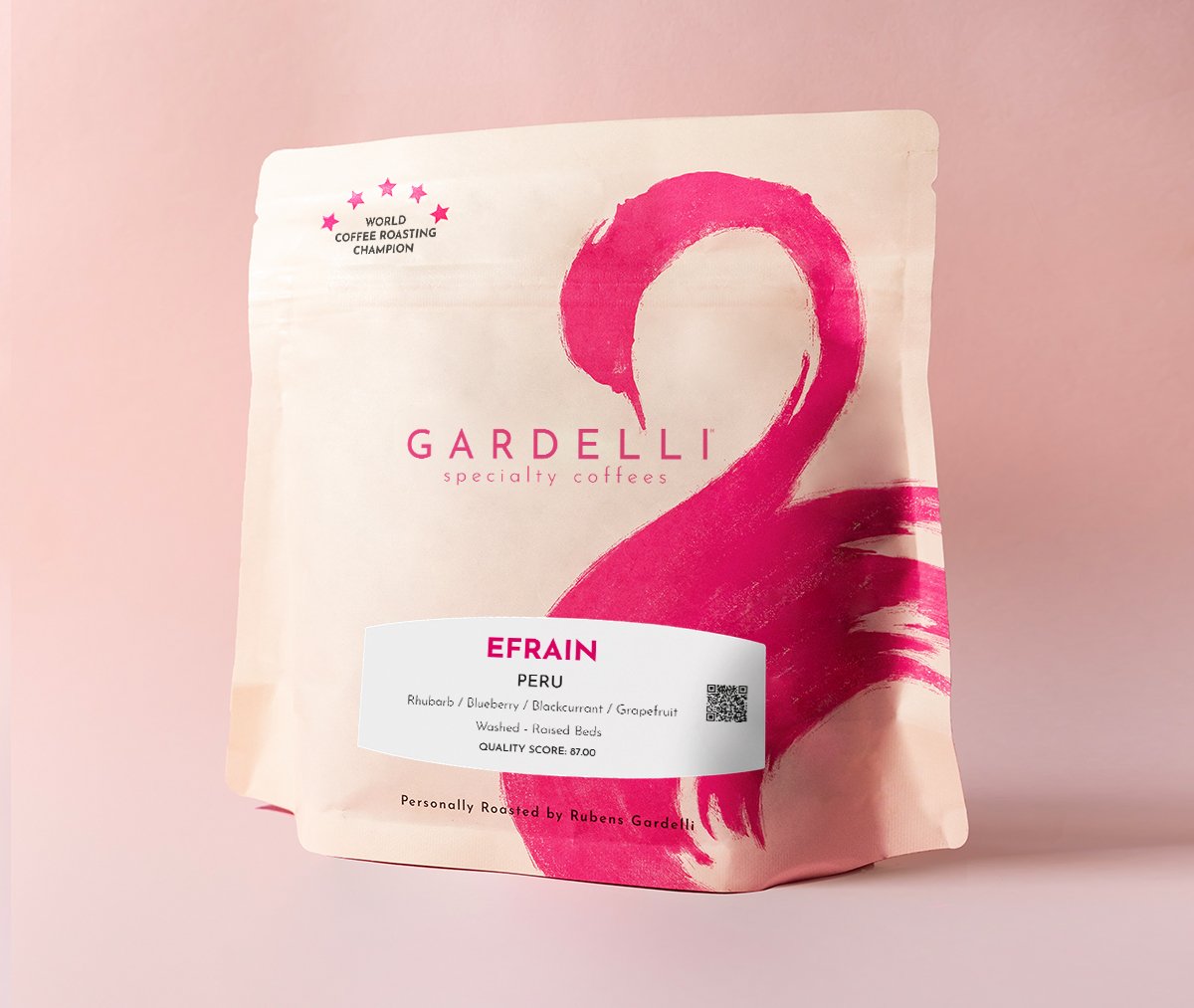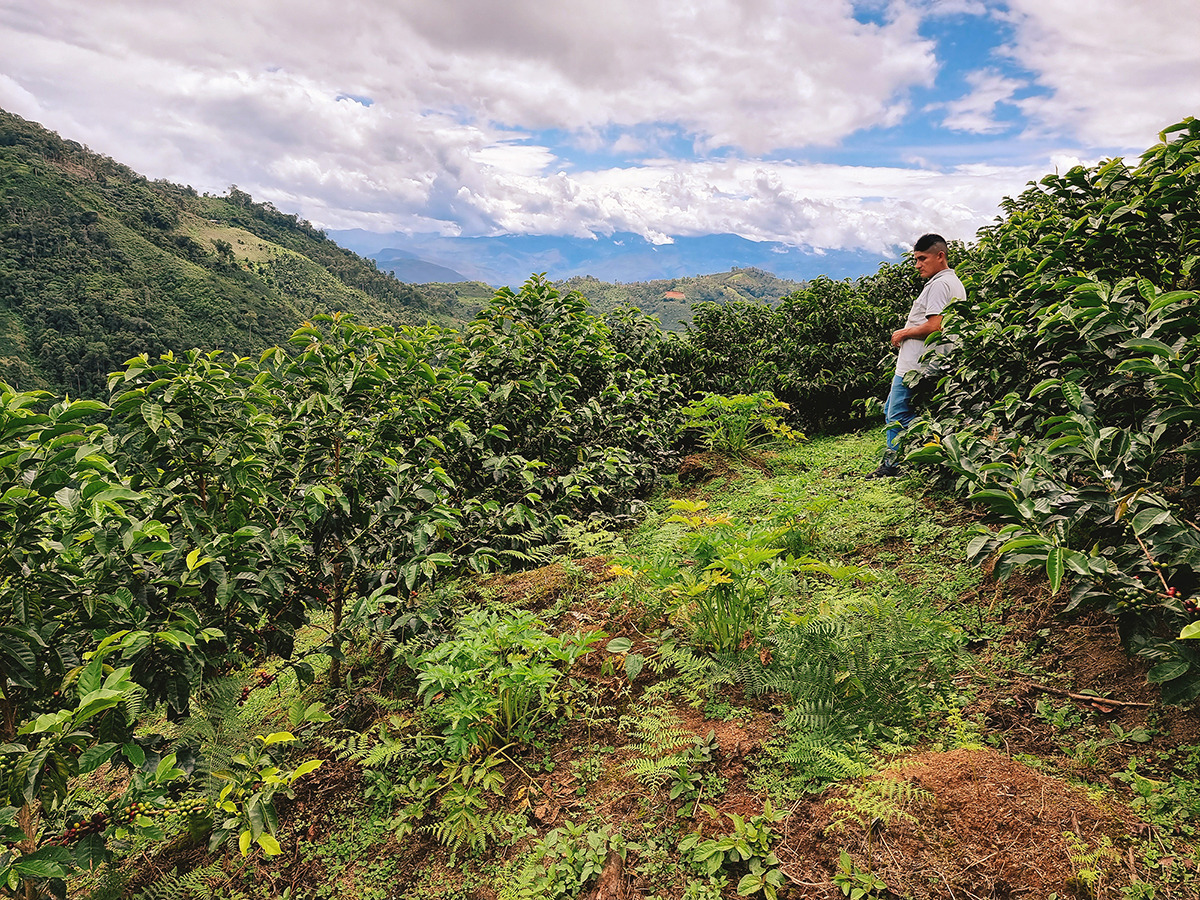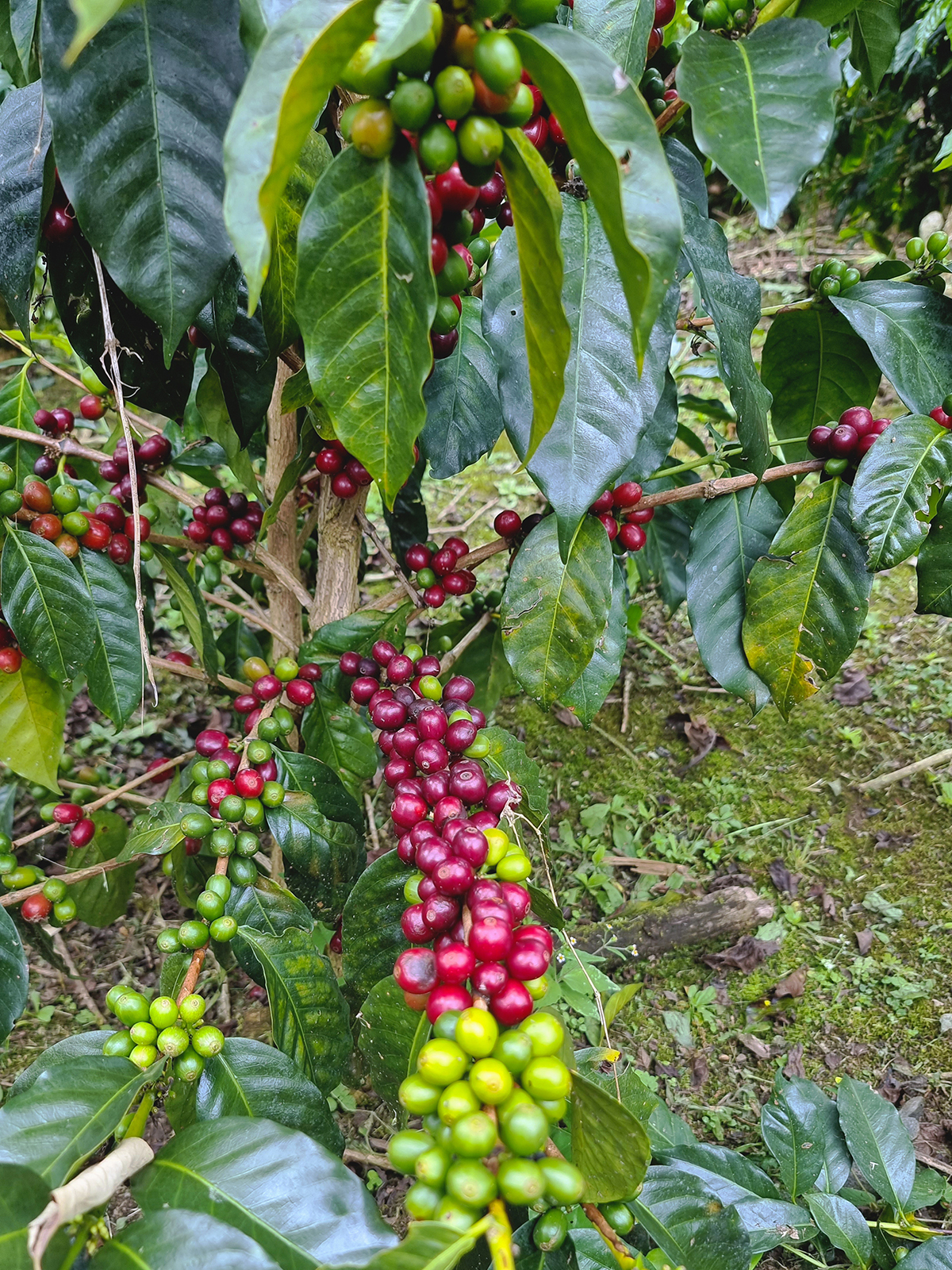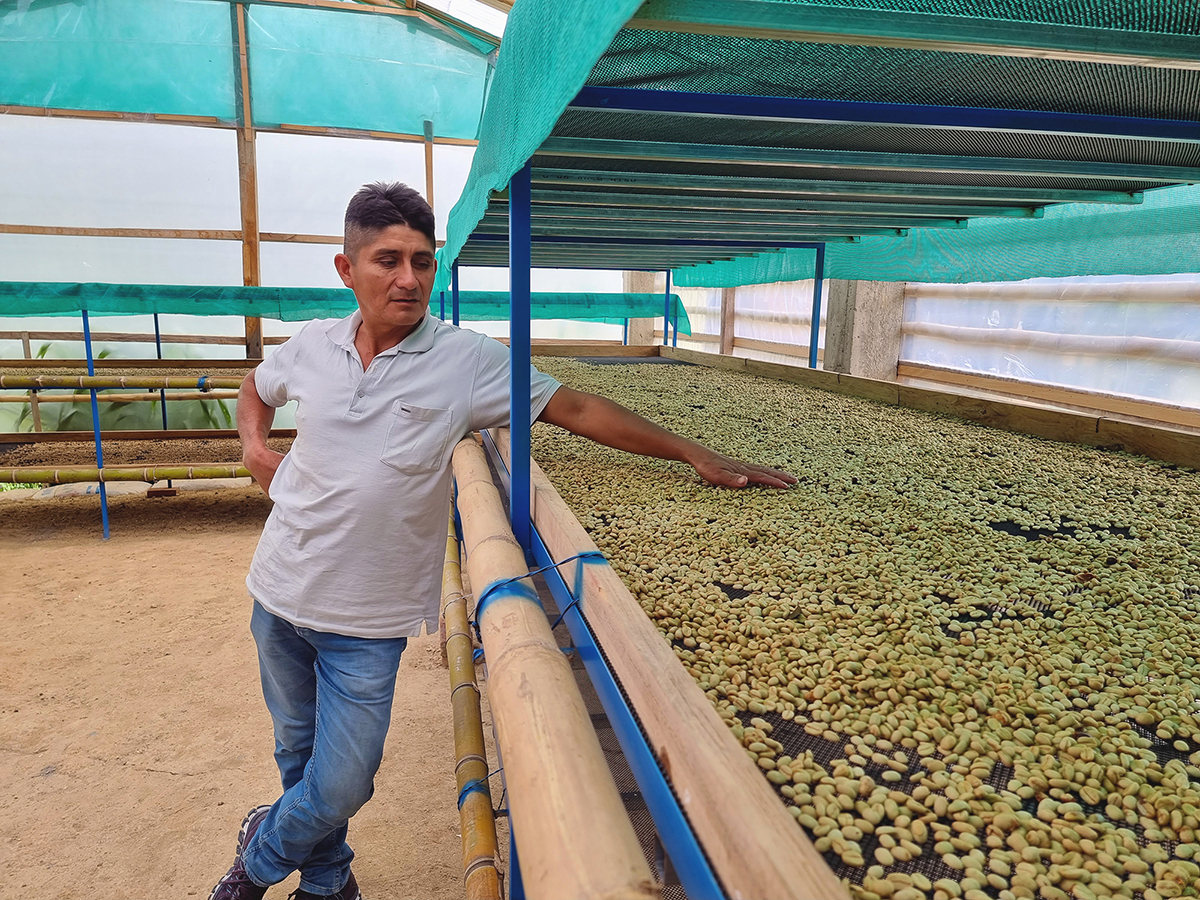








Peru
QUALITY SCORE: 87.00
Cup Notes
Rhubarb / Grapefruit / Caramel
Suggested for espresso and filter
An amazing Peruvian masterpiece. This exceptional lot, born from the innovative spirit of Efrain Carhuallocllo Salvador, blurs the lines between Peruvian and Kenyan flavours.
A cup filled with creamy textures, extreme sweetness, and a delightful dance of zingy acidity and fruity notes.
when we roast
We freshly roast to order all coffees on Monday, Wednesday and Friday (excluding national holidays), and ship the same day! Cut-off time is 11:59pm (UTC+1) of the day before the roast day. *We only ship whole beans*
Efrain Carhuallocllo Salvador owns 4 hectares of land in the El Corazon village in the Chirinos distrcit, Peru.
He is one of the most innovative producers in the country, and his farm and wet mill are run with extreme care and precision. Efrain competed in the very first Cup of Excellence competition in Peru and placed second. Efrain had won in a number of local and nation-wide competitions even before CoE and did so afterwards as well.
He is possibly a Peruvian producer with most distinctions and top competition results. Efrain cultivates Caturra (yellow and red) and Geisha varieties. Herbicides and pesticides are not used in cultivation, but chemical fertilisers are introduced to increase yields.

CATURRA
Caturra is a natural mutation of the Bourbon variety, discovered on a plantation in the state of Minas Gerais, Brazil, sometime between 1915 and 1918. This mutation, characterized by a single-gene causing dwarfism or compact growth, earned the variety its name, derived from the Guarani word meaning "small," also known as "Nanico."
Following the discovery of Caturra, selections were conducted by the Instituto Agronomico (IAC) of Sao Paulo State in Campinas, Brazil, starting in 1937. Breeders were particularly intrigued by Caturra's reduced size, allowing for closer plant placement, and its closely spaced secondary branches, facilitating increased fruit production within the same space. The selection process for Caturra, termed mass selection, involved choosing individuals based on superior performance, combining seeds from these plants to form a new generation, and repeating the process.
Although never officially released in Brazil, Caturra became prevalent in Central America. Introduced in Guatemala in the 1940s, widespread commercial adoption took another three decades. From Guatemala, it spread to Costa Rica, Honduras, and Panama. For many years, Caturra held significant economic importance in Central America, often serving as a benchmark against which new cultivars were tested. In Colombia, Caturra accounted for nearly half of the country's production until a government-sponsored program, starting in 2008, promoted the renovation of over three billion coffee trees with the leaf-rust-resistant Castillo variety, which has Caturra parentage.
Caturra played a role in the intensification of coffee cultivation in the region during the second half of the 20th century, marked by higher-density planting, often in full sun. Additionally, Caturra is recognized as one of the parent varieties in the so-called "Catimor" family of cultivars. Various lines of the coffee-leaf-rust-resistant Timor Hybrid were crossed with Caturra to produce a dwarf/compact plant with rust resistance.
PACHE
Pache is a natural mutation of the Typica variety.
Thanks to a single gene that causes the plant to grow smaller (Dwarf/Compactism gene), this variety can be planted more densely and achieve higher yields.
It was discovered in 1949 in Guatemala on the Brito farm in Santa Cruz Naranjo, Santa Rosa. From there it was selected by mass selection, meaning that a group of individual plants were selected based on their superior performance, seed from these plants was bulked to form a new generation, and then the process was repeated. Mass selection took place across private farms in Guatemala, and from there spread to other regions and countries.
Pache is compact plant with medium yield and good quality, but highly susceptible to major diseases.

Once picked, cherries are fermented for 24 hours and then washed and dried.
Drying process is undertaken with great care to make sure the coffee is dried slowly and evenly for better longevity.
In Efrain's drying area, it usually take around 25 days for beans to achieve the desired moisture level.
